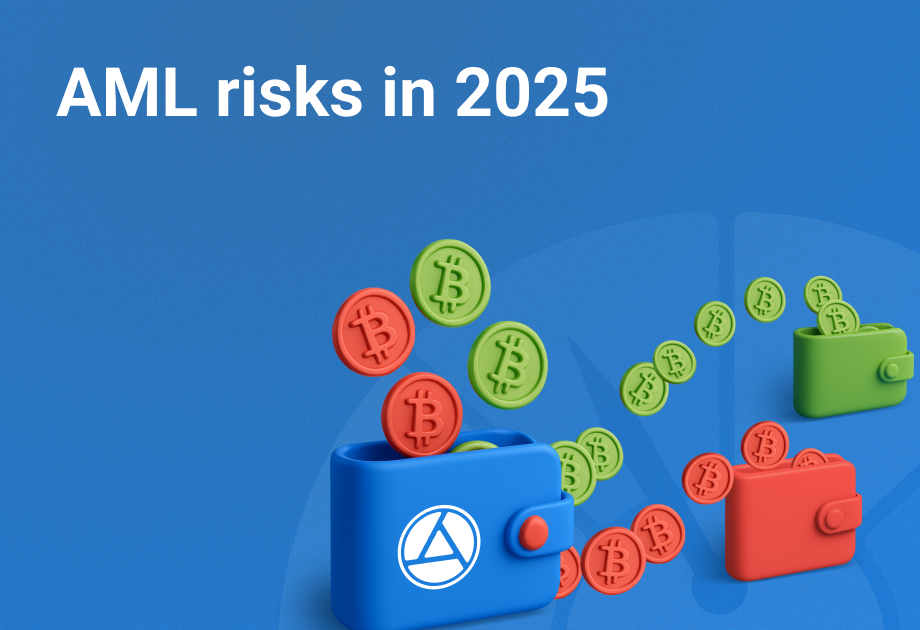How businesses can protect their cryptocurrency funds from loss

Cryptocurrency losses: real-world stories and how to prevent them
Cryptocurrencies have surfaced as doable remedies. There is a big radiance of cryptocurrency as a lucrative investment opportunity. Crypto has gained massive attention in recent years. Enticed by this digital currency, businesses have been drawn to it, hoping to capitalize on its viability for high returns.
Even so, business executives should grasp the shortcomings of cryptocurrency transactions in business. They should do this before venturing into this volatile market.
However, crypto losses can be prevented in your business. Within this blog, we aim to explain the elements below:
- Real-life events of cryptocurrency losses
- How to guard your cryptocurrency savings
- The justifications for the need to rank first the safety of your company’s crypto assets.
In the latest report by De.Fi, it’s been revealed that the crypto industry suffered a loss of $204.3 million. This was due to various hacking incidents, scams, and rug pulls in Q2 2023. Only $4.9 million was recovered during this period. This is a significant decrease compared to the previous year's recovery of $6.9 million in Q2 2022.
Valuable tips and strategies to prevent costly losses will be offered. This will happen as we delve into the assorted risks connected with crypto wallets.
Real-world examples of crypto losses
As the cryptocurrency market develops, so do the hazards involved. Below are real-world examples of crypto losses and the proactive measures to shield your investments from these losses.
Improper disposal of hardware
In 2013, a British man, James Howells, discarded a hard drive containing a treasure trove of Bitcoin. Recently, he has once again approached local city officials. He is imploring them to award him permission to scour a landfill site in search of this misplaced property.
Despite his insistent appeals, the Newport City Council declined his demands. The reasons for the decline were related to environmental preservation and insufficient funding. All this was reported by CNBC.
However, with a hot wallet like BitHide, this problem wouldn’t happen.
Hacking attacks
June 2023 saw a major breach experienced by Atomic Wallet, leading to losses of $100 million in crypto hacks. This event caused a group of concerned cryptocurrency investors to start a class action lawsuit. At least 5,500 crypto accounts on the platform were affected by this failure.
Following the incident, crypto analytics firms like Elliptic connected the theft to Lazarus Group. This group is a North Korean team that’s related to computer crime. It’s widely believed to be responsible for many crypto thefts amounting to billions. However, recent claims have suggested the possible involvement of another culprit. Feldman, who is making legal accusations, proposes that a Ukrainian group may be behind the hack.
So, how to prevent this type of breach? Although hot wallets are extremely convenient for business crypto transactions, it’s better to use cold wallets for coin storage or withdraw crypto at all.
Phishing attempts
CoinEX, a cryptocurrency exchange, suffered a hack on its hot wallets, resulting in a loss of around $70 million across different asset types. Compromized private keys caused the data breach. For this, fraudsters created a fake LinkedIn vacancy and even made a few-stage interview with a tech guy from CoinEX.
The stolen money only came from CoinEx's hot wallets, which serve as reserves and do not affect the platform's users. While no current proof suggests future problems, any users who suffer losses due to this failure will be fully made up for. This is in line with a statement from CoinEx.
The breach was kicked off on September 12, 2023, with an initial extraction of a big sum in ETH. This was accompanied by a steady draw out of over $20 million in ETH, $10 million in TRON, and $6 million in BSC and Bitcoin, alongside other asset types.
As human misleads are the major source of hacker attacks, only caution and strict rules can prevent this fraud.
Forgotten passwords
This is in unison with research compiled by the New York Times in 2021. A programmer of German origin, Stefan Thomas, couldn’t trace the password to his portable hard drive, referred to as an IronKey. This hard drive accommodated the private keys to a digital wallet containing 7,002 Bitcoin.
Mr. Thomas met an inconvenience when he misplaced the document with the password for his IronKey several years ago. This device permits users a limited quantity of attempts, specifically ten. This is so before locking itself and forever hiding its data. Despite his efforts, Mr. Thomas has been unsuccessful in accessing the contents. He attempted eight variations of passwords, which he frequently utilizes.
Are you scared of forgetting or misplacing your password? If so, there are wallets with a backup functionality, which enables the recovery of the pass with the mnemonic phrase. Or, one can write the password on paper and keep it in a safe, confidential location.
How to Shield Your Crypto Savings
The most secure method of shielding your crypto savings is to process money on a cold wallet and keep it safe or exchange the savings into fiat.
Alternatively, one can use dependable cold wallets. What does it mean? To safeguard against hacking attacks, secure cold wallets must conceal your wallet's IP address. Why? Because once your wallet IP falls into criminal hands, your whole cryptocurrency portfolio could be threatened.
So, the first step in establishing a strong defense system is recognizing the significance of wallet IP security. How to do so?
For instance, BitHide features the Dark Wing technology. Using both TOR and VPN, BitHide ensures that your wallet remains protected from dubious entities while connected to its nodes.
However, that’s not all. Let’s consider other options to safeguard your funds.
- Be cautious of any messages or emails from unknowns. In order to shield oneself against phishing scams, maintain a state of vigilance and skepticism towards any unexpected emails, SMS, or inquiries seeking personal particulars. It is imperative to always verify the authenticity of senders. This can be accomplished by cross-checking email addresses, domain names, and website URLs. Refrain from clicking on dubious links or downloading attachments from unidentified sources.
- Introduce two-factor authentication (2FA). The 2FA provides an additional layer of security to your accounts. This ensures that even when a scammer gains access to your login credentials, an extra verification process will be required to obtain entry.
- Backup Your Wallet. Always back up your wallet before disposing of your hardware. This backup should be stored securely in multiple locations. These locations include encrypted private servers and offline devices. A backup means you can always restore access to your crypto assets if something unexpected happens.
- Distinguish access to your accountants. Use wallets with a multi-role functionality to differentiate what data is accessible for your employees. This way, your wallet won’t be compromized even if one of your employees fails.
Conclusion
Many businesses need a reliable gateway/wallet to accept crypto. The security of your funds in this sphere is of extreme significance.
In this masterpiece, we dug into significant parts of crypto losses that have happened in real society. It also showed how business owners and top managers can protect their cryptocurrency funds.
If you still have any doubts about the wallet to use for your business or how to protect your funds, contact our team , and we’ll share how to do it with BitHide.
FAQ
Why should I worry about the defense of my money if I already have a cold wallet kept in a guarded area?
The possibility for concrete harm or misplacement is a big concern when engaging with crypto cold wallets. Cold wallets, contrary to hot wallets or online exchanges, are physical gadgets. These devices securely shield the private keys necessary to get into your crypto.
Yet, if these devices are misplaced, hijacked, or harmed, there is a real chance of permanently losing admittance to your coins.
What are the hazards of storing my money on gadgets like laptops or phones?
Such risks include physical risks such as damage, loss, and theft. They also involve digital hazards such as hacking, harmful programs or apps, alongside phishing attacks. Your money can be highly endangered by technological glitches and system failures.
How can I safeguard my money from IP tracking and defend anonymity while utilizing cryptocurrencies?
Introducing the groundbreaking Dark Wing technology by BitHide. We are delighted to present a cutting-edge solution for stealth and safeguarding. By merging TOR and VPN, this innovative technology ensures the concealment of your IP address. It does this while fortifying the security measures for your wallet.


